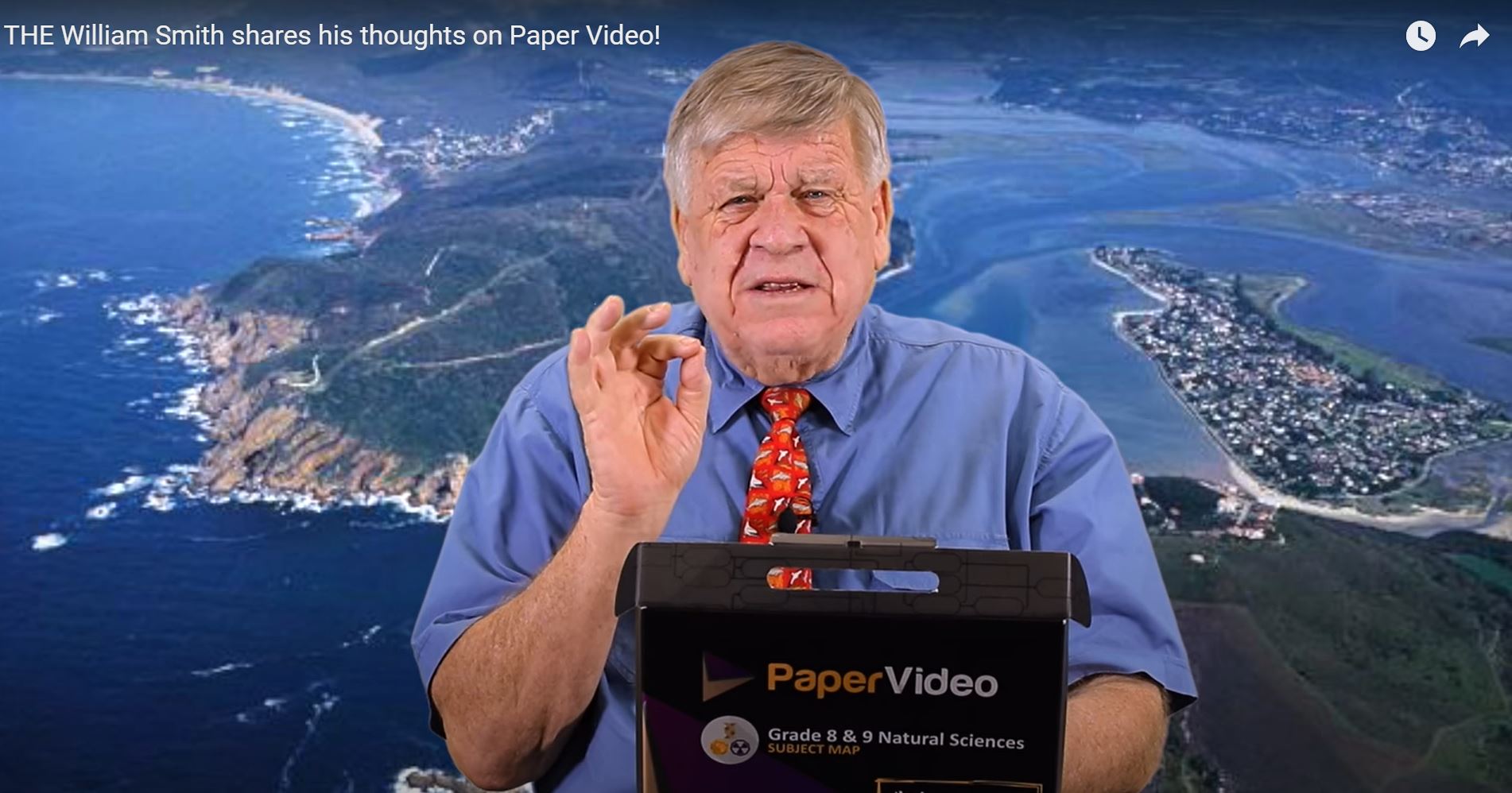
By The Division of Communication and Advancement
Rhodes University mourns the passing of education giant, alumnus, and Order of the Baobab recipient, Dr William Smith.
“We honour his legacy, and wish to express our deepest condolences to his loved ones and all who were guided by some we consider to have been the teacher of the nation,” said Vice-Chancellor, Prof Sizwe Mabizela.
In 2021, Rhodes University conferred a degree of Doctor of Laws (LLD) (honoris causa) on Smith, already the 2019 recipient of the coveted Distinguished Alumni Award.
Smith completed his BSc and his BSc (Hons), both with distinction, at Rhodes University. His parents JLB Smith (who identified the coelacanth), and Margaret Smith (ichthyologist and accomplished fish illustrator) both had deep-rooted ties with the University and Makhanda (then Grahamstown).
His first project in the education sector was establishing 'Star Schools' to provide value-for-money education with top-class teachers. During 20 years with Smith at the helm, Star Schools was responsible for some of the most innovative advancements in education ever seen in South Africa, including the Pre-University School, which prepared first-year students and was adopted by universities across the country.
Smith pioneered SABC broadcast education with audio-visual backup, started the Let’s Speak Afrikaans radio programmes, authored several study guides in Physical Science, developed a world-first in a TV studio to produce educational videotapes, and his Basic Mathematics video series was rated the best educational programme on video in the world in 1984 in the United Kingdom.
Over the years, Smith’s personality and carefully structured lessons led him to become one of the most popular Science teachers with about 12,000 students passing through his hands per annum. He has lectured in Japan, the United States of America, and Europe.
In 1970, Smith ran the first multi-racial school, despite problems with authorities, and four years later, audio cassette tapes were used for the first time in The Tape Tutoring Service and were later replaced by video as technology advanced. UNISA studied Mr Smith’s methods and introduced audio cassettes into their correspondence courses.
In 1990, Smith began producing The Learning Channel’s educational television programmes with the financial backing of Hylton Appelbaum, then Executive Director of the Liberty Life Foundation. As a result of his work on this programme, Smith was voted one of the top three presenters on South African television in 1998.
By 2000, Smith pioneered educational broadcasts into 28 countries in Africa reaching over 100 million viewers through their regional ground stations. A few years later, he pioneered the first live interactive education across the African continent, using the TV-Africa satellite signal and satellite telephone lines back to the studios to talk to students across Africa. This reached tens of millions of people daily. Dealing with three completely different syllabi and several languages simultaneously and a three or four-second delay each time when talking to the pupils proved to be one of the most difficult things Smith ever undertook.
Smith reached many young people in South Africa and beyond, for whom his televised lessons were the only quality instruction they received in Mathematics and Science. Prof Mabizela said: “Thanks to his exceptional teaching skills and compassion, for almost two decades, the Learning Channel became an indispensable platform for young people of our country to receive interactive TV education in Mathematics and Science. In this way, he became the teacher for the entire South African nation.”
In 2019, Smith was awarded the Order of the Baobab (silver) in recognition of his services to teaching and the "demystification of mathematics and science". He was also a renowned conservationist and owned the Featherbed Nature Reserve in Knysna, where he lived until the sale of the land and company in 2004.
On his Rhodes University Distinguished Alumni Award, his nominator, Mr Mandilakhe Kila, Stakeholder Engagement Officer at Rhodes University, had this to say: “I saw it fit to nominate William Smith, because of the memorable influence he had had on my childhood and my generation. We would come back from school, and there he was, on TV, simplifying maths and physics. His passion made us want to learn more,” he said.
Watch as Rhodes University confers a degree of Doctor of Laws (LLD) (honoris causa) on its alumnus and notable educator Mr William Smith – virtual graduation. https://youtu.be/evMGTVY1AXU
